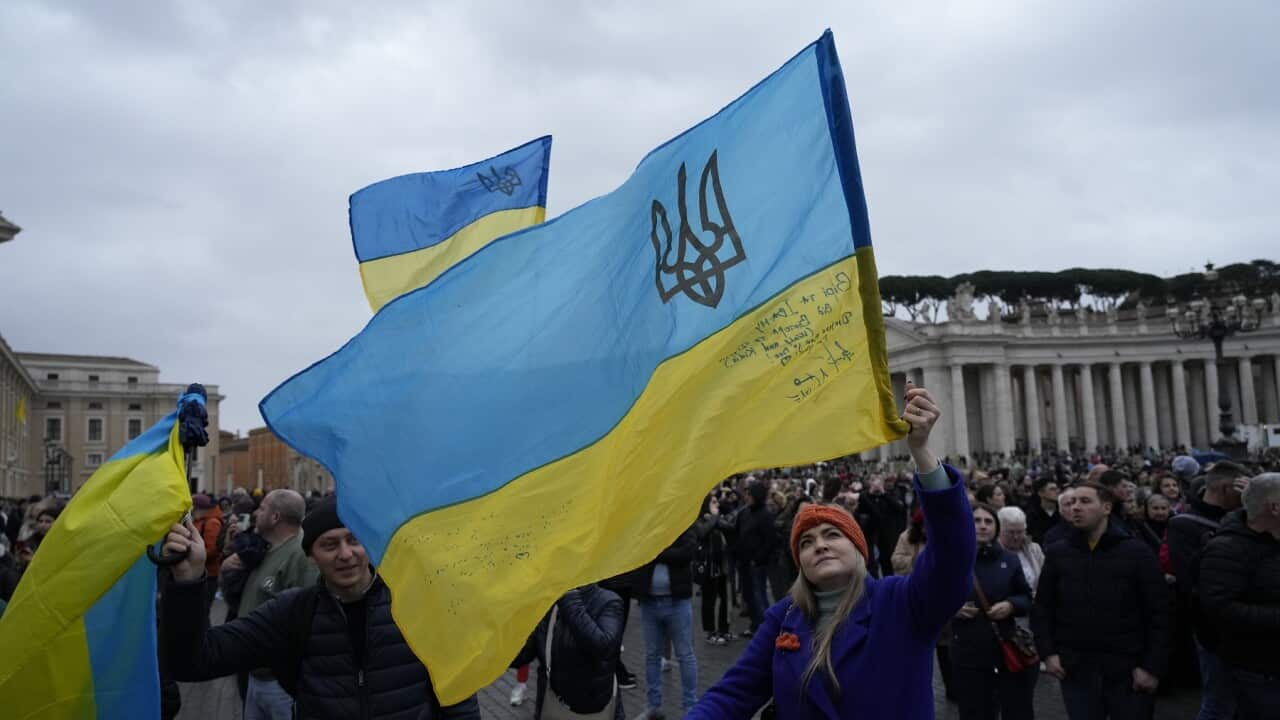TRANSCRIPT
There was anger in Ukraine's capital, Kyiv, when Pope Francis said Ukraine, facing a possible defeat, should have the courage to negotiate an end to the war with Russia and not be ashamed to carry out peace talks.
"I think that the strongest one is the one who looks at the situation, thinks about the people and has the courage of the white flag, and negotiates. ... When you see that you are defeated, that things are not going well, you have to have the courage to negotiate. You are ashamed, but if you continue like this, how many deaths (will there be)? ... Do not be ashamed to negotiate before things get worse."
Ukrainian foreign minister Dmytro Kuleba was the first official to Tweet a response.
He makes a reference to cooperation between certain members of the Catholic Church and Nazi forces during World War Two.
“The strongest is the one who, in the battle between good and evil, stands on the side of good rather than attempting to put them on the same footing and call it “negotiations”. At the same time, when it comes to the white flag, we know this Vatican strategy from the first half of the twentieth century. I urge to avoid repeating the mistakes of the past and to support Ukraine and its people in their just struggle for their lives."
Ukraine's Ambassador to the Vatican, Andrij Jurasz, also posted a World War Two analogy on social media.
"Consistency is crucial. In addressing the current global conflict, it's vital to draw lessons from the Second World War."
Ukraine's President Volodymyr Zelenskyy, during a televised address, replied to the Pope saying Ukrainians of all faiths were fighting to prevent Russia destroying them.
"When the Russian evil started this war on February 24, all Ukrainians stood up to defence. All Christians, Muslims, Jews, everyone. I thank every Ukrainian chaplain who is with the army, in the defence forces, on the front line, defending life and humanity. They support us with prayer, with talk, and with deeds. This is what the church with the people is. Not 2,500 kilometres away, somewhere to mediate virtually between someone who wants to live and someone who wants to destroy you."
Some European politicians and commentators also expressed anger after the Pontiff’s statement.
They suggested the Pope had stayed silent on Russia’s crimes as the aggressor in the invasion, placing the burden of peace on Ukraine’s shoulders.
Polish Foreign Minister Radek Sikorski posted this on social media:
“How about, for balance, encouraging Putin to have the courage to withdraw his army from Ukraine? Peace would immediately ensue without the need for negotiations."
German Christian Democrat Member of the European Parliament Dennis Radtke called the Pope’s remarks “shameful” and “incomprehensible”.
The Pope has not commented further on his controversial remarks, which were recorded last month, but on Sunday, from the Vatican, he prayed for an end to conflicts in the DRC, the Middle East and Ukraine.
“Let us pray for peace in this country (Democratic Republic of Congo), as well as in the tormented Ukraine and in the Holy Land. May the hostilities that cause immense suffering among the civilian population cease as soon as possible.”













